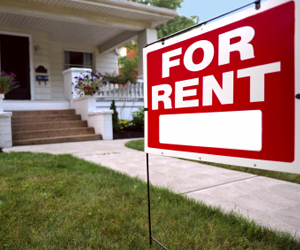6 Ways to Improve Your Credit Before Buying Your First Home
Categories: Resources & Tips Comments Off on 6 Ways to Improve Your Credit Before Buying Your First Home
If you’re a first-time homebuyer with minor credit issues, take a moment to try these steps for boosting your score prior to applying for a mortgage loan.
So you’re ready to take the plunge into home ownership and you’re itching to get out and start exploring in search of the home of your dreams. But what happens when your credit score isn’t quite as ready for buying a home as your mind is? Poor credit could easily make finding a mortgage lender difficult, or could result in higher interest rates and all-around worse deals than a good credit score would provide. If you’re planning on buying your first home in the near future, follow these tips to help raise your credit score and build a well-rounded credit history that will make lenders want to loan you the money for your mortgage.
Some studies have estimated that as many as 25% of all credit reports contain inaccurate information. Even the smallest error could be the difference between getting a mortgage at a great rate or no mortgage at all. Once you’ve decided to buy a home, pull your full credit report and go over it thoroughly to make sure all of the information listed is correct. If you find errors, dispute them through the credit bureau that reported it.
The best and easiest way to build up your credit score is to pay all of your bills on time and in full every month. Paying them early looks even better. With each payment you make, your score will grow and your overall debt will shrink.
If you’ve had any past overdue accounts go into collections or have had a lender obtain a lien or judgment against you, you’ll want to have them all paid off entirely before you start looking for a mortgage lender. While lenders will still be able to see that you had judgments, collections and liens against you for up to seven years, having these paid off looks better than having them outstanding on your credit report.
While your credit card might have a $10,000 maximum balance, having it maxed out looks bad to potential lenders and doesn’t look good on your credit history. Some lenders may consider multiple maxed out balances to be a sign of irresponsibility on your part. Try to keep all of your balances at 30% of the maximum. If that’s not possible, aim for less than 50%.
Even if you haven’t used that department store credit card and years and you finished paying it off ages ago, don’t go rushing to close the account. All accounts on your credit report can be beneficial toward your score, even those with a zero balance. Let all of your accounts continue to accumulate even after you’ve paid them off. The longer you’ve had the account in good standing, the more it will help.
Having several credit cards is a great way to start building credit, but it’s not good at demonstrating that you can be responsible for managing multiple forms of credit. The more diverse your credit, the better. Credit cards, auto payments, student loans and other forms of loans that are all in good standing on your report shows you know how to use multiple types of credit and can handle multiple responsibilities at once.
Image license: iStockphoto (view source)










